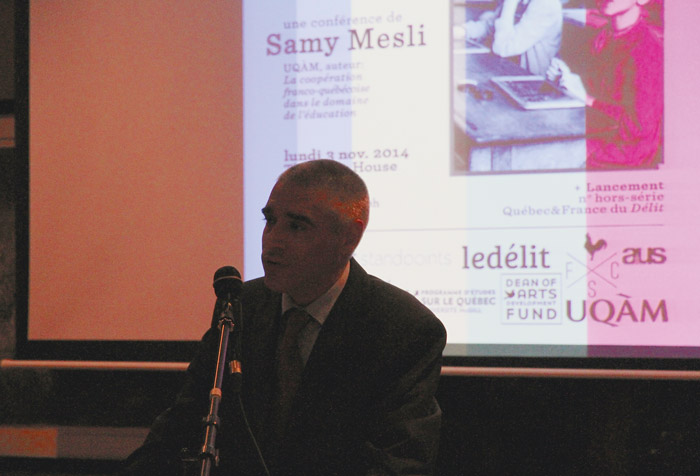Last Monday, the McGill Commission on Francophone Affairs hosted a conference discussing the effects of the bilateral agreement between France and Quebec on education. The event was also co-hosted by the Department of French Language and Literatures, Le Délit, the Department of Political Science at the Université du Québec à Montréal (UQÀM), and Standpoints, a Montreal-based student-run think tank. Samy Mesli, a professor at the Department of Political Science at UQÀM, spoke to the history of the bilateral agreement, which was signed in 1965 and allowed for cooperation between Quebec and France for issues, such as education, under provincial jurisdiction.
“It was a founding act […] in the domain of international law,” Mesli said. “This agreement of Feb. 27, 1965 also marked the beginning of Quebec’s foreign policy [….] The 1965 agreement opened the door to bilateral cooperation, first in education and then in culture. Now, it touches almost every aspect of economics sectors—health, social, economics, and more.”
Melsi also highlighted the opportunities that the agreement provided for Quebecois students going to France.
“[There are] 5,000 Quebec [students] in France at the moment,” Mesli said. “[The] majority of Quebec students will return back to Quebec and maintain an intellectual lifestyle [….] Conserve these intellectual lives.”
The Quebec government is planning to change the tuition rates for French citizens who currently pay the same rates as Quebec residents. In response to the Quebec government’s recent announcement that the stipulations of the bilateral agreement are under review, Mesli stressed the importance of approaching the issue with a historical and cultural context in mind.
“In these troubled or uncertain times, the decision made by the Quebec government of increasing the tuition imposed to French students the is a mistake,” he said. “It [considers] a short-term view instead of taking [into] account the entirety of the […] positive impacts for the Quebec universities [with] the French students’ presence.”
With additional reporting by Domitille Biehlmann, Laurie-Anne Benoit










http://montrealgazette.com/news/quebec/french-presient-francois-hollande-visits-quebec-and-montreal should stay